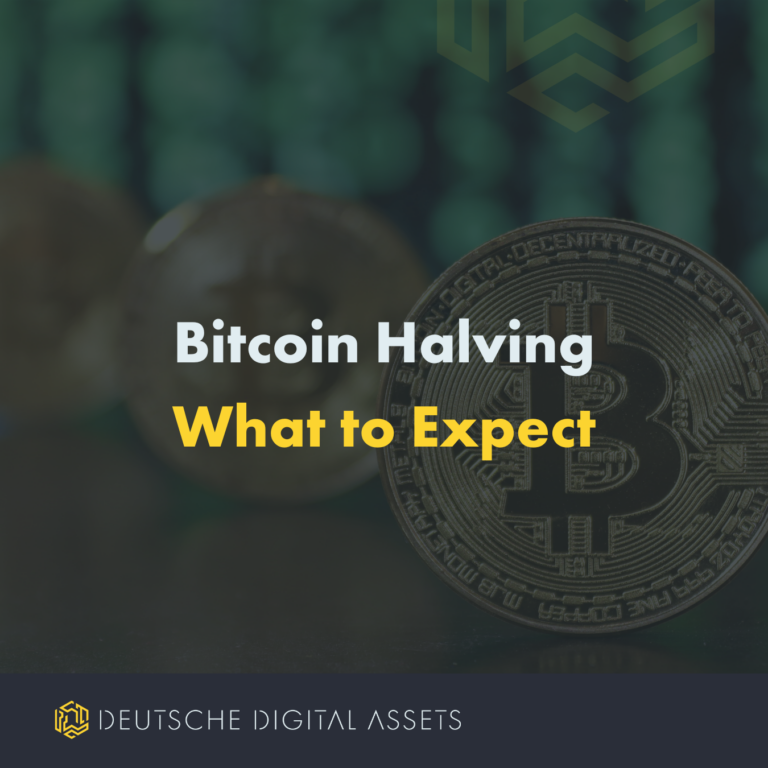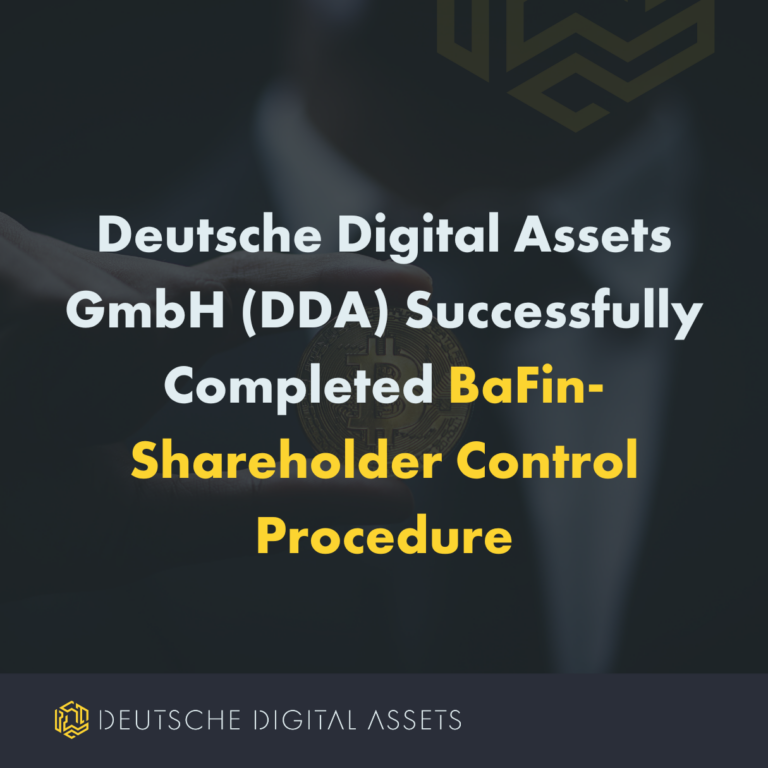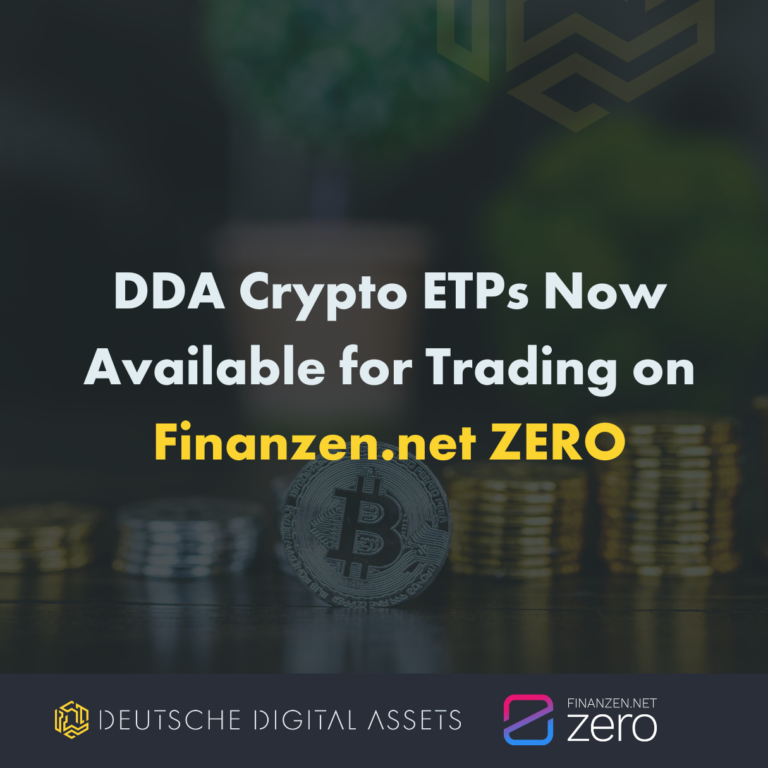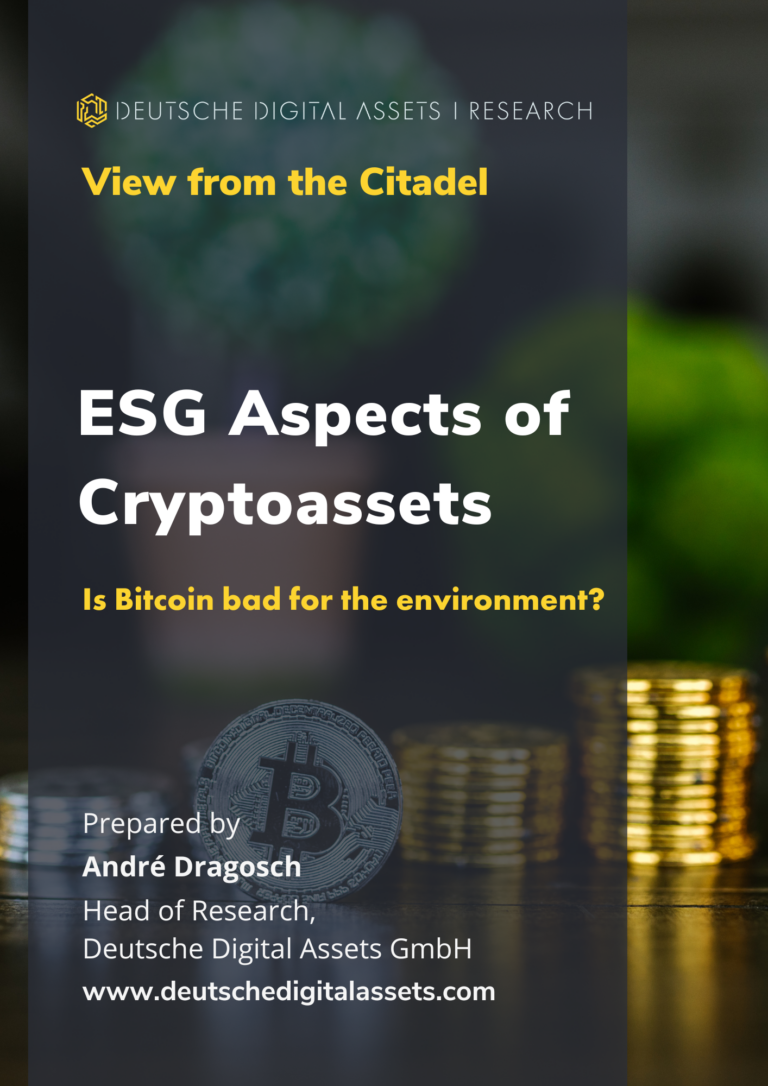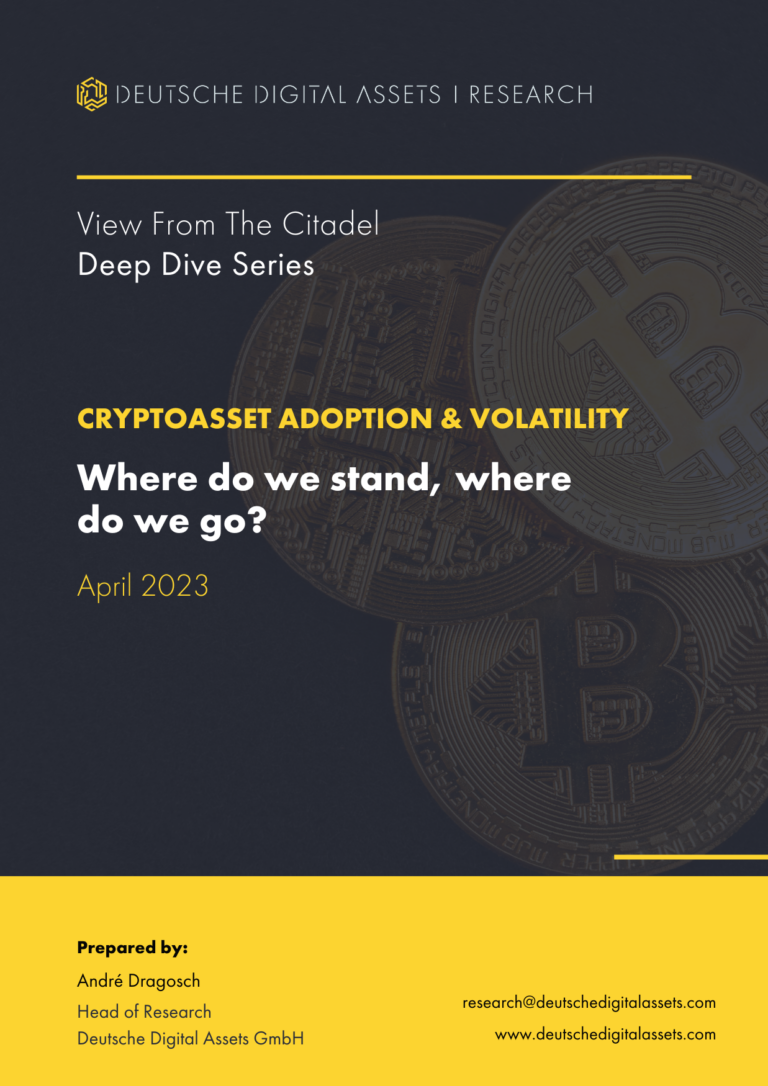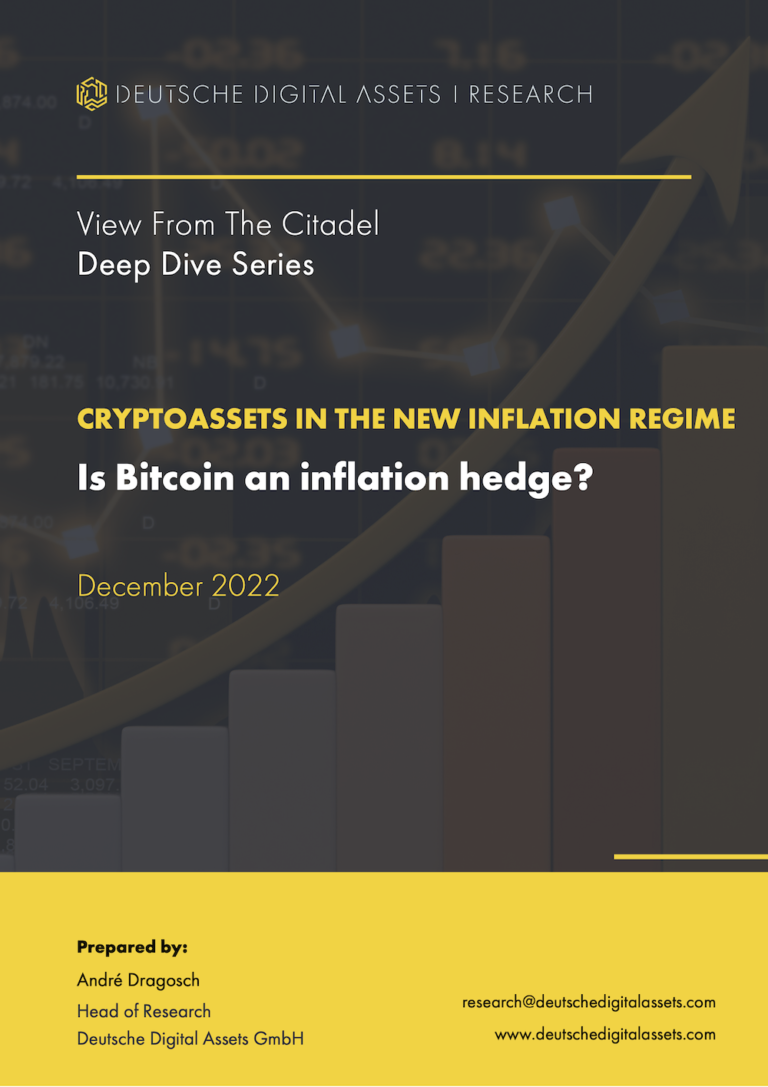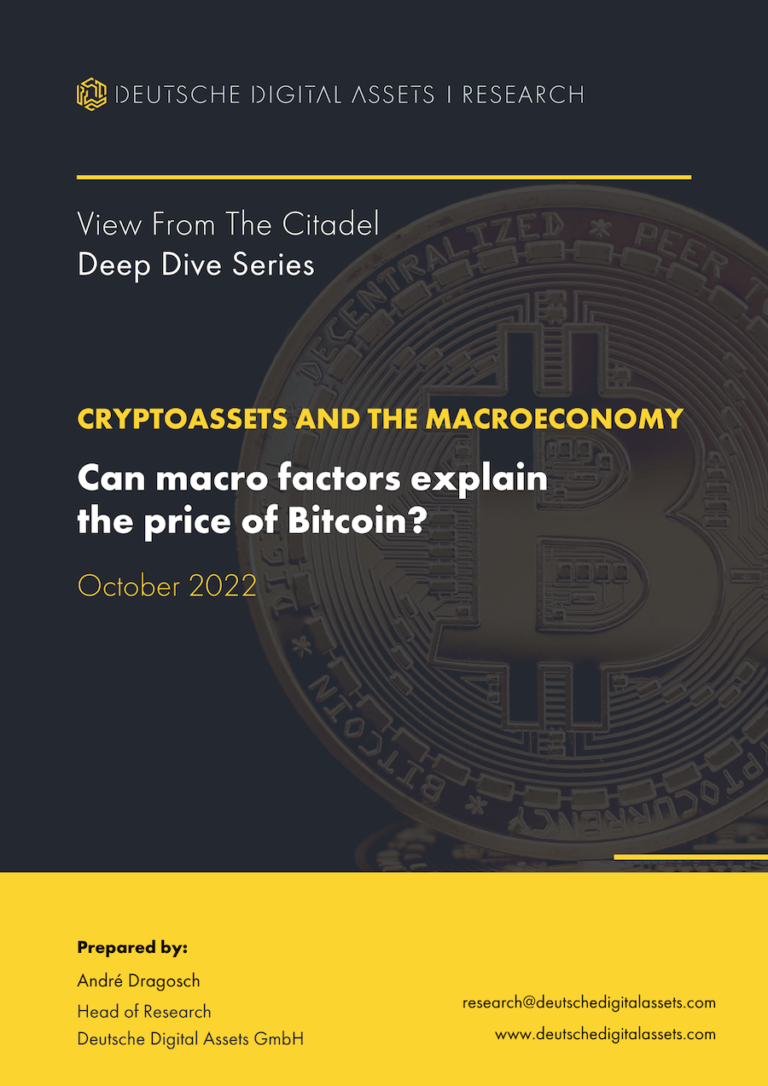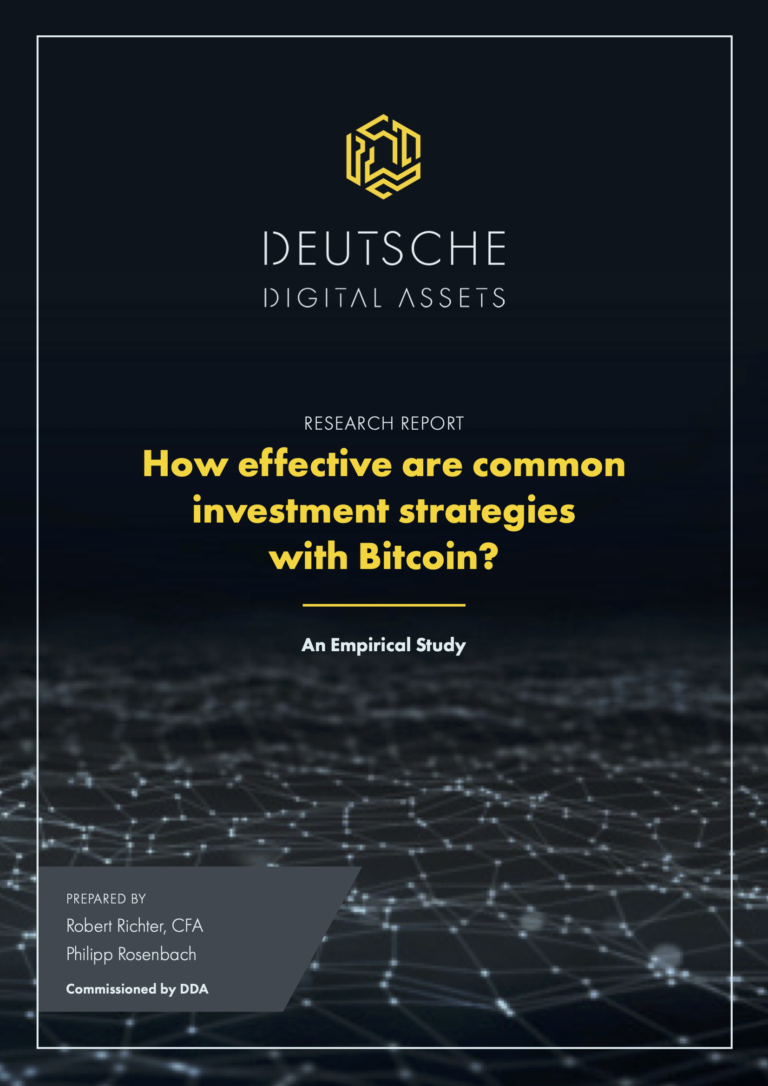This year, bitcoin has become legal tender in El Salvador, suggesting that it may be on track to challenge today’s prominent reserves currencies, should nation-state bitcoin adoption continue. Read on to learn more about bitcoin’s potential role in the global currency markets and what the world would look like with bitcoin as a reserve currency.
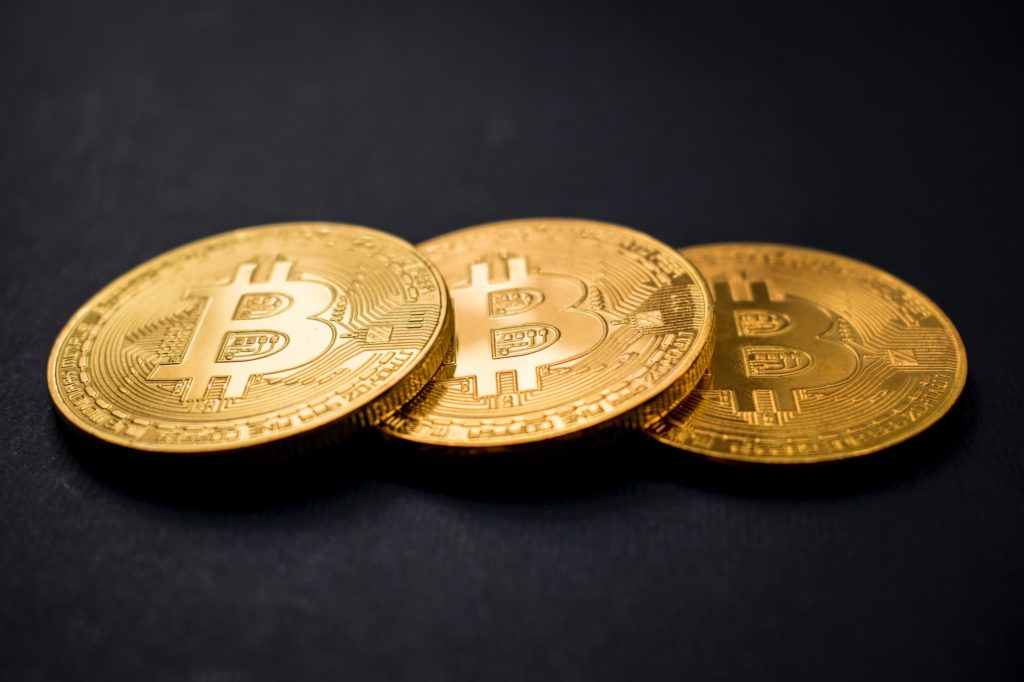
The Struggling U.S. Dollar
Reserve currencies are held by central banks and major financial institutions as a foreign exchange reserve to stabilize exchange rates and facilitate global trade.
The U.S. dollar has served as the world’s main reserve currency since the Bretton Woods Agreement of 1944. At the time of the agreement, U.S. GDP accounted for about 50 percent of the world economic output, making a strong argument for the greenback to act as the world’s reserve currency.
Backed by gold reserves at the time, the U.S. dollar proved strong and stable as a world reserve currency.
Today, however, the picture looks very different.
Following the U.S. government’s inability to hold sufficient gold reserves to back the U.S. dollar in the 1960s and President Richard Nixon’s move to take the dollar off the Gold Standard in 1971, the real value of the dollar has been on a steady decline.
Combined with occasional money printing manias to combat economic crises, the dollar’s purchasing power has dropped significantly over the last few decades.
As a result of the struggling dollar and the emergence of economic powerhouses like China, the dollar is starting to lose influence in the global markets, with some calling for its removal as the world’s reserve currency.
Apart from the U.S. dollar, there are other reserve currencies approved by the IMF, including the euro, Japanese yen, British pound, and Chinese yuan. Among these reserve currencies, China is most likely to make a move for its currency to take the reserve currency top spot.
China’s influence on global trade is increasing as its GDP is gradually closing in on that of the U.S. According to StatisticsTimes, China’s GDP growth rate of 2021 (8.44%) beats that of the U.S. (6.39%) and on a purchasing power parity (PPP) basis.
While the U.S. dollar is struggling, China is emerging as the next global superpower threatening to end dollar dominance as the global reserve currency.
But still, the problem of trust plagues every fiat currency, as governments have been known to mismanage currencies by printing money in excess or engaging in currency wars. Many nations and businesses are starting to turn their attention elsewhere for a better reserve alternative, with Russia even proposing a united future world currency.
However, the emergence of Bitcoin is shaking things up. Several countries are considering the possibility of adopting bitcoin as legal tender and potentially also as a reserve currency.
Is El Salvador Just the Beginning?
On September 7, 2021, El Salvador officially announced bitcoin as a legal tender. After abandoning its national currency for the U.S. dollar in 2001, El Salvador now has a dual-currency system, with both the greenback and the “orange coin” as official currencies.
The country is not slowing down in ensuring bitcoin plays a large role in its economy as all citizens who register for its Chivo wallet will be gifted $30 in BTC. Over 3 million Salvadorans have already downloaded the government’s official wallet.
El Salvador is also attracting foreign investors, considering the country is offering residency to foreigners who invest a minimum of three bitcoin in its economy. Accompanied by the fact that El Salvador places no property tax on buildings or private land, the country might just become a hub for Bitcoin investors and businesses.
About a fifth of El Salvador’s GDP comes from remittances, and the use of traditional remittance rails has resulted in Salvadorans working abroad paying costly fees just to send money home. With bitcoin now being legal tender, the cost of remittances is expected to drop drastically as bitcoin remittances are much cheaper than traditional money transfer operators.
This could lead to an increase in the GDP of El Salvador, which will reduce the country’s debt-to-borrowing ratio. And if Bitcoin proves to be successful in El Salvador, more countries might start shifting towards adopting it.
Bitcoin as legal tender in El Salvador also changes the classification it falls under in most countries. For example, in Australia and the U.S., bitcoin is not classified as a foreign currency since it was previously not recognized as a legal monetary unit in any nation. But this no longer holds as bitcoin is now officially on the map of global currencies, with El Salvador leading the way of what might become a trend.
More Central and South American countries have declared their interest in adopting a “Bitcoin Standard,” making bitcoin legal tender. Especially for countries that largely or exclusively rely on the U.S. dollar, adopting bitcoin may make sense. Having a currency that operated outside of the Federal Reserve’s scope of influence could help their economies.
Oil-producing countries such as Russia and Saudi Arabia may also decide to switch to a neutral currency like bitcoin to reduce the influence the U.S. garners from the dollar’s reserve currency status.
With the billions flowing into bitcoin from institutional investors, venture capitalists, high-net-worth individuals, and now nation-states, bitcoin could reach a point where it competes with the U.S. dollar, the Chinese yuan, the Japanese yen, the British pound, and the euro for reserve currency status.
Bitcoin as a Reserve Currency
The architecture of Bitcoin puts it at an advantage to function as a reserve currency because it has many of the attributes of sound money. Bitcoin is valuable, portable, divisible, indestructible, homogenous, cognizable, and has utility.
Fiat government money is bound to be inflationary as more can (and will) always be printed. Countries like Zimbabwe, Venezuela, and Argentina have experienced hyperinflation due to the reckless printing of their money. Even the United States is now experiencing high levels of inflation due to excessive money printing.
Bitcoin, on the other hand, was created to be scarce with its maximum supply capped at 21 million, hence making it potentially more valuable over time.
Currency manipulation has also plagued the global currency markets on multiple occasions. Governments regularly intentionally devalue their national currencies in relation to other currencies, thereby reducing the cost of exports to gain an advantage over competing countries.
Using a neutral currency like bitcoin as a global reserve would ensure that there is little room for manipulation, hence promoting a fairer and productive financial market for every nation.
Some other Bitcoin enthusiasts are already seeing it as a global reserve currency with the increased rate of digitalization in the world. The internet is a global village, and it needs a digital reserve currency. And with social media giant Twitter launching its bitcoin tipping feature, the stage is set for Bitcoin to become the internet of money.
However, several concerns have also been raised about the scalability issues of the Bitcoin blockchain. Bitcoin only processes between four to seven transactions per second (TPS), which is too little for a reserve currency, considering it won’t be viable as a means of payment in today’s market.
But the Lightning Network, a layer-2 protocol on the Bitcoin blockchain, solves this problem as it could increase Bitcoin transaction speed from a meagre seven transactions per second to millions and even billions of transactions per second. If layer-2 solutions, like the Lightning Network, succeed, bitcoin has the potential to rub shoulders with other reserve currency contenders, like the dollar or the yuan.
In light of the features and characteristics of Bitcoin, more nations are poised to start contemplating using it as a reserve currency. If the “Bitcoin experiment” in El Salvador becomes a success, the path may be paved for bitcoin to become one of a handful of global reserve currencies.
About Iconic Funds
Iconic Funds is the bridge to passive and actively-managed exposure to crypto. Iconic Funds, via its subsidiaries, offers crypto asset ETP’s, diversified index funds, and alpha-seeking strategies for investors.
Iconic Funds’ mission is driving the adoption of crypto assets. As the bridge for investors to gain exposure to Crypto Assets, Iconic’s licensed and regulated vehicles offer investors a menu of investment choices ranging from passive index exposure to actively-managed strategies. Iconic Funds removes the technical risks of crypto investing by offering investors trusted and familiar means to invest in crypto at industry-leading low costs.
The marriage of state-of-the-art technology, innovative investment products, and uncompromising professionalism places Iconic at the vanguard of crypto asset management.
- Analyzing the Primary Value Drivers of Leading Cryptocurrencies ➡ Download here
- How Effective are Common Investment Strategies with Bitcoin? ➡ Download here
- Investigating the Myth of Zero Correlation Between Crypto Currencies and Market Indices ➡ Download here
For further information, please visit deutschedastg
Legal Disclaimer
In no event will you hold ICONIC HOLDING GMBH, its subsidiaries or any affiliated party liable for any direct or indirect investment losses caused by any information in this article. This article is not investment advice or a recommendation or solicitation to buy any securities.
ICONIC HOLDING GMBH is not registered as an investment advisor in any jurisdiction. You agree to do your own research and due diligence before making any investment decision with respect to securities or investment opportunities discussed herein.
Our articles and reports include forward-looking statements, estimates, projections, and opinions which may prove to be substantially inaccurate and are inherently subject to significant risks and uncertainties beyond ICONIC HOLDING GMBH’s control. Our articles and reports express our opinions, which we have based upon generally available information, field research, inferences and deductions through our due diligence and analytical process.
ICONIC HOLDING GMBH believes all information contained herein is accurate and reliable and has been obtained from public sources we believe to be accurate and reliable. However, such information is presented “as is,” without warranty of any kind.






